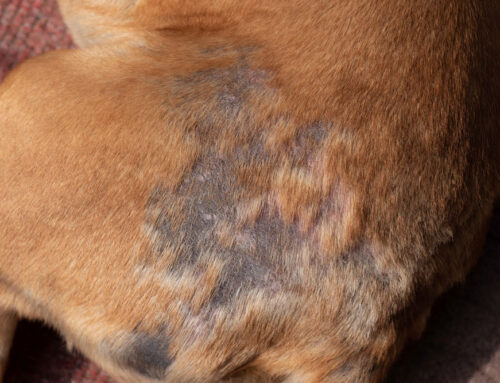’Tis the season to hit the road, the airport, or whatever travel means you choose to spend time with the ones you love. If your pet is tagging along, consider these 10 useful tips to keep your holiday travel safe, fun, and worry-free.
#1: Head to the veterinarian
No matter where your holiday travel plans take you, your Tidmore Veterinary Hospital veterinarian should be the first stop. Our veterinary team will assess that your pet is healthy enough for travel, and check off a few other things on your travel to-do list, including:
- Health certificates for interstate or international travel—keep in mind that most health certificates must be issued within 10 days of travel
- Any necessary medications for motion sickness or anxiety
- Additional vaccinations or preventive medications if needed, based on your destination
- Microchipping your pet
#2: Make reservations in advance for pets
Finding accommodations that welcome pets can be a challenge. Many hotels have only a few pet-friendly rooms, and they book up quickly during the holidays. Many travelers have luck with Airbnb or similar platforms, but ensure you read the fine print, as some places have restrictions on pet size, breed, or other traits.
#3: Create a pet packing list
Forgetting Fido’s food or, worse, his life-saving medication, can quickly spoil a holiday trip. Minimize the risk for forgetfulness by creating a list of essential pet items well before your trip and adding important items as you think of them. Don’t forget the following:
- Adequate food, water, and treats
- Enough medications and preventive-care drugs for the trip’s duration
- Portable food and water bowls
- Favorite toys
- Poop bags
- Secure-fitting collar and leash
#4: Check in with your airline for pet rules
Most airlines have strict guidelines regarding pet travel. They will allow a small pet in an airline-approved carrier in the cabin, but larger dogs must travel in the cargo hold. Airlines may also limit the number of pets allowed on a single flight. Check with your airline carrier as early as possible for specific details, reservations, and any necessary documents that you’ll need.
#5: Update your pet’s identification
If your pet is microchipped and has an identification tag on her collar, you may think you are prepared for the event that she becomes lost. But, is your contact information up-to-date? Was her microchip registered at the time it was inserted? Check these details before you embark on your journey together.
#6: Keep your pet’s routine
When possible, try to retain a normal routine with your pet while traveling. Keeping her meals, bathroom breaks, and daily walks consistent and regular will remind her that traveling doesn’t have to be stressful. Take time to play with your pet, remain calm, and give her lots of positive feedback.
#7: Schedule extra time for pets
When planning your travel itinerary, don’t forget to schedule in extra time for your furry family members. Not only will dogs need frequent potty breaks, but a quick stroll or romp every couple of hours can also help ease anxiety or stiff joints.
#8: Study your destination
Getting the low-down on where you’re headed before you depart for your trip is essential. Different geographical areas pose different pet threats, so you should do a little research regarding vector-borne diseases, parasites, and wildlife risks surrounding your destination area.
#9: Invest in a good quality pet enclosure
If you are flying with your pet, her carrier must comply with specific guidelines, so verify this with your airline prior to purchase. If you are traveling by car, choose a spacious enclosure that fits safely in your vehicle. If your feline friend is accompanying you, an enclosure that can fit a small litter box would be ideal.
#10: Do a test run with your pet

If you have never traveled with your pet, practice some scenarios to get her accustomed to the experience. Try taking her for a long drive, or encourage her to spend time in her crate or carrier by putting a few treats or toys inside. Start early, take it slowly, and continually praise her. Eventually, she may turn into your newfound travel companion.
If you still have questions about pet travel, or need to set up an appointment for a consultation or health certificate, or to microchip your pet, contact us.








Leave A Comment